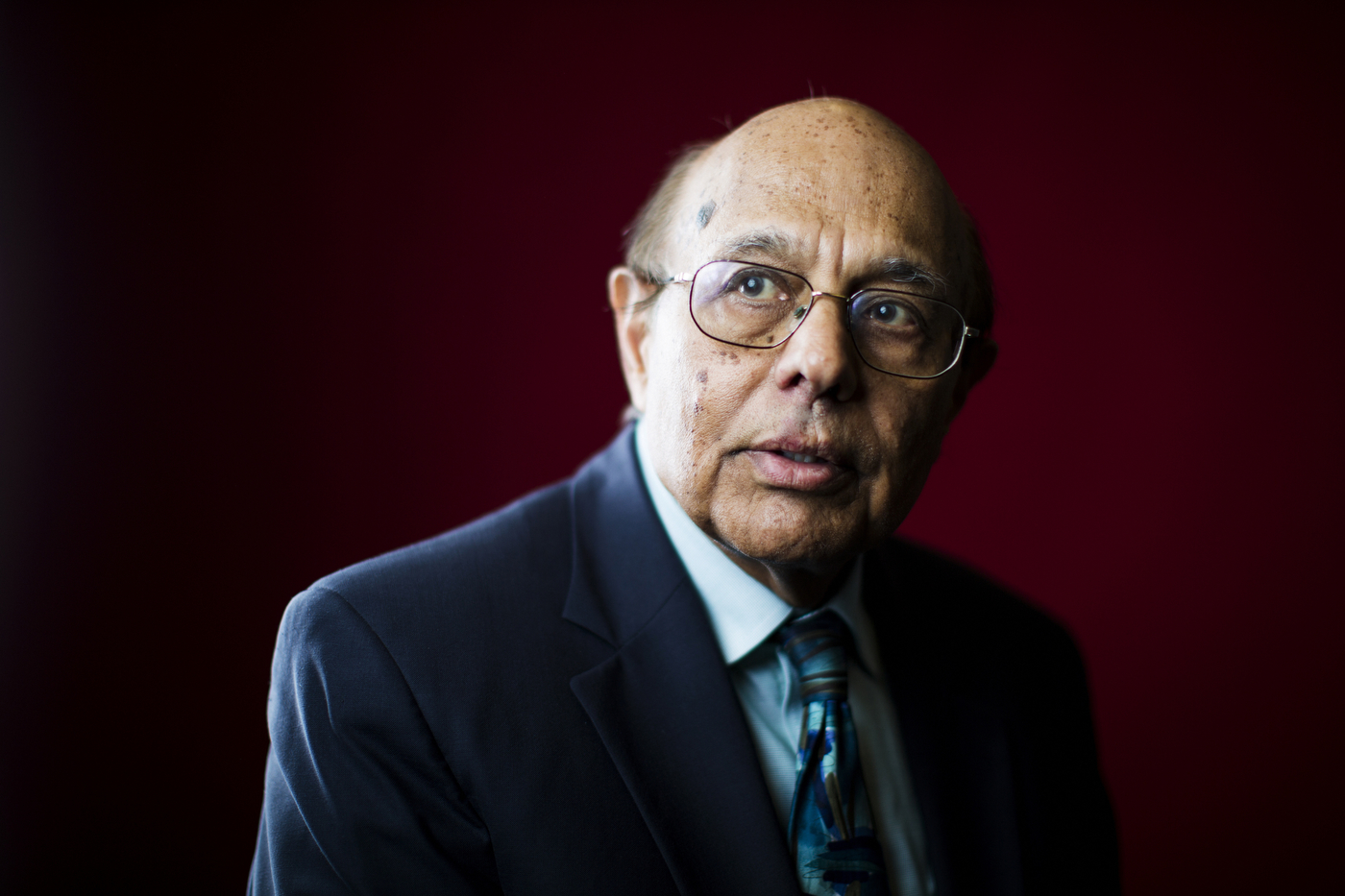What does the future of healthcare look like? Perhaps a lot like the Massachusetts Healthcare Reform Law of 2006.

Healthcare in the United States has become a major campaign issue in the run-up to the 2020 presidential election. And candidates have presented several strategies to reform the system.

Vinod Sahney, University Distinguished Professor of Mechanical and Industrial Engineering at Northeastern. Photo by Adam Glanzman/Northeastern University
President Donald J. Trump, who is running for re-election, has said he’ll eliminate former President Barack Obama’s healthcare law. Meanwhile, Democratic contender and former Vice President Joe Biden has said he’ll expand it. U.S. Senators Bernie Sanders and Elizabeth Warren, progressive candidates in the Democratic Party, have advocated a plan that would guarantee healthcare for all U.S. citizens.
Vinod Sahney, who uses his engineering background to look for ways to improve healthcare treatment, patient safety, and quality of care, argues that the candidates should examine the healthcare model that Massachusetts has followed for more than a decade.
“One of the biggest issues [in healthcare] is access to care, and Massachusetts does this very well,” says Sahney, University Distinguished Professor of Mechanical and Industrial Engineering at Northeastern.
Local elected officials passed the Massachusetts Healthcare Reform Law in 2006, which requires most residents over 18 years old to have health insurance for the entire year. If residents have a lapse in their coverage, they pay a penalty through their tax returns.
Sahney says that the state’s system—which received bipartisan support from local lawmakers including then-Gov. Mitt Romney—might serve as an example for candidates who support healthcare for all.
“Quality, cost, and coverage are the three big issues with healthcare,” says Sahney, who will host an upcoming lecture by Andrew Dreyfus, president and chief executive of Blue Cross Blue Shield of Massachusetts, “and Massachusetts has plans in place for all three.”
Jacqueline Griffin, an assistant professor of mechanical and industrial engineering at Northeastern who helped organize the event, says that scholars, politicians, and industry leaders will need to work together in order to solve complex health problems that are plaguing the United States.

Jacqueline Griffin, an assistant professor of mechanical and industrial engineering at Northeastern. Photo by Matthew Modoono/Northeastern University
For example, Griffin works with doctors to determine the best way to utilize their resources. She’s helped hospitals redesign spaces such as waiting rooms in order to serve the most people as effectively as possible.
“We partner with hospitals to consider new ways to improve healthcare systems,” Griffin says.
The lecture, titled “A Healthcare Experiment Called Massachusetts: Lessons for the Nation,” will be held in Raytheon Amphitheater on Monday, Sept. 23, at 5 p.m.
“We want to bring in people who are thinking about innovation in healthcare in order to move the whole industry forward,” says Griffin.
For media inquiries, please contact media@northeastern.edu.





